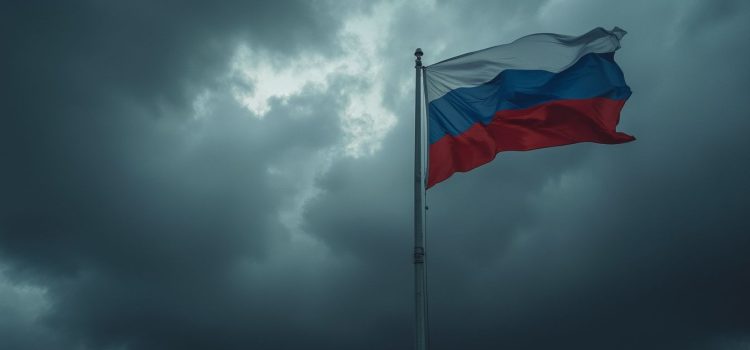
This is a free excerpt from one of Shortform’s Articles. We give you all the important information you need to know about current events and more.
Don't miss out on the whole story. Sign up for a free trial here .
What impact have Western sanctions on Russia truly had on its economy? How has Putin’s regime managed to adapt and survive despite these extensive restrictions?
Russia’s response to international sanctions shows both vulnerability and resilience. While facing inflation and labor shortages, the nation has found ways to maintain its economy through oil production and financial innovation.
Keep reading to learn about the effectiveness of sanctions against Russia and the steps that could make future measures more impactful.
Western Sanctions on Russia
Western sanctions on Russia have hurt its economy, particularly its labor market and inflation rates. But the country has shown resilience through increased oil production and adaptive economic strategies. In June 2024, the US intensified pressure by imposing 300 new sanctions targeting both Russian entities and international supporters of its war on Ukraine. However, the Kremlin’s ability to adapt to and evade these measures raises questions about their effectiveness in curbing Moscow’s war efforts, prompting experts to recommend additional steps.
We’ll explore what the main targets of the US sanctions on Russia are, how effective these sanctions have been in pressuring Russia’s economy, and what strategies Russia is using to adapt to and mitigate the impact of sanctions.
Details
Since Russia invaded Ukraine in February 2022, the US has sanctioned over 4,000 Russian entities and individuals. As part of this ongoing effort, the US Treasury introduced more than 300 new sanctions in June 2024. These align with broader G7 efforts to increase pressure on Russia, aiming to weaken its ability to finance war efforts and limit access to critical resources and technologies.
The US Treasury’s round of sanctions target the following:
- Organizations helping Russia evade sanctions and supporting its military actions against Ukraine.
- Foreign banks and financial institutions financing Russia’s war economy.
- International networks that launder gold, support drone production, and acquire sensitive military items for Russia.
- Entities linked to Russia’s future energy, metals, and mining sectors.
- Companies supporting Russia’s upcoming LNG projects—including those aiding in natural gas project construction or making specialized LNG transport equipment.
- Individuals and businesses in nations such as China, the UAE, and Turkey that aid Moscow in bypassing Western restrictions on crucial technology.
The Treasury also expanded its definition of Russia’s military-industrial base to include all previously sanctioned entities. This increases the number of potential targets and makes it riskier for foreign banks to do business with any sanctioned Russian entity.
(Shortform note: According to How the West Brought War to Ukraine by Benjamin Abelow, the oversimplified portrayal of the conflict—with Ukraine cast as purely innocent and Russia as the sole aggressor—has allowed Western policymakers to justify aggressive responses such as increased military aid and severe economic sanctions. Abelow argues that this black-and-white narrative not only helps build public support for these actions but also tends to discourage critical discussion about their potential consequences.)
The Impact of the Sanctions
Experts say that economic isolation has taken a toll on Russia’s economy, leading to a devalued ruble, higher inflation, and more complex international money transfers. This has significantly reduced the inflow of foreign workers, suggesting sanctions are discouraging economic migration to Russia.
While Russia’s GDP growth outpaced G7 nations in 2023, the country still grapples with labor shortages, stagnant productivity, and soaring inflation, revealing deeper economic challenges.
Other experts point to multiple indicators suggesting that western sanctions haven’t crippled the Russian economy as intended, including:
- The oil and gas industry continues to fund Moscow’s military efforts. Oil production reached post-Soviet record levels in 2023, while natural gas exports to China increased.
- Increased public spending. Strategic investments in construction and military sectors have stimulated economic activity and employment.
- Adapted financial systems. After initial shocks, Russia stabilized markets by hiking rates and imposing capital controls. It also found workarounds and exploited loopholes to ensure the financial system operates effectively and supports national economic objectives.
- Regional economic shifts. Economic benefits in regions engaged in war-related manufacturing have helped mitigate some adverse effects of sanctions on local economies.
- Supply chain restructuring. Russia has demonstrated adaptability by regularly creating new companies to restructure its supply chains, helping it dodge sanctions.
How Russia Has Adapted
In response to Western sanctions, Russia has implemented both immediate measures and long-term strategies to mitigate their impact and maintain economic stability.
Broad economic strategies:
- Economic reprioritization. Russian President Vladimir Putin has shifted a large portion of the budget toward defense and war-related industries, reflecting a transition to a war-focused economy.
- Tax increases. In March 2024, Putin signaled he’ll raise taxes on companies and wealthier individuals, likely to address budget strains caused by increased military spending.
- Leadership changes. In May 2024, Putin appointed economist Andrei Belousov as military head to address economic challenges crucial for maintaining Russia’s war efforts.
Long-term sector strategies:
- Labor market adaptation. Russia is encouraging older workers to remain employed longer to address labor shortages caused by the war and demographic trends.
- Technological self-reliance. Russia is developing domestic technologies to maintain oil and gas production in response to restricted access to Western technology.
(Shortform note: In The Russo-Ukrainian War, Serhii Plokhy illustrates how Russia sought alliances in the East as a reaction to Western sanctions and international isolation, highlighted by Putin’s first trip abroad to Tehran after the conflict began, where he sought unity with nations that were also dealing with the repercussions of Western sanctions due to Russia’s aggressive actions on military, economic, and diplomatic fronts.)
What’s Next
Experts say that, for Russian sanctions to be effective, policymakers can take additional steps to counter Russia’s evasion tactics and economic resilience.
- Refine and tighten sanctions. From the outset, sanctions must be clearly defined and difficult to circumvent, focusing on restricting Russia’s energy exports to undercut its economy and war financing. (Shortform note: Serhii Plokhy [The Russo-Ukrainian War] describes the conflict as the main catalyst for global energy scarcities and a significant element in altering the patterns of international energy distribution. Serhii Plokhy argues that, as a result of sanctions and worldwide exclusion, Russia is compelled to sell its hydrocarbon resources to Asian markets—particularly China—at discounted rates, thereby providing China with a beneficial position in this arrangement.)
- Improve international cooperation. Effectiveness depends in large part on improving cooperation with countries such as China. The US has signaled readiness to increase pressure on China to address the country’s support of Russia.
- Foster private sector involvement. Businesses should be encouraged and incentivized to help monitor transactions and manage supply chains to strengthen enforcement.

Want to fast-track your learning? With Shortform, you’ll gain insights you won't find anywhere else .
Here's what you’ll get when you sign up for Shortform :
- Complicated ideas explained in simple and concise ways
- Smart analysis that connects what you’re reading to other key concepts
- Writing with zero fluff because we know how important your time is






